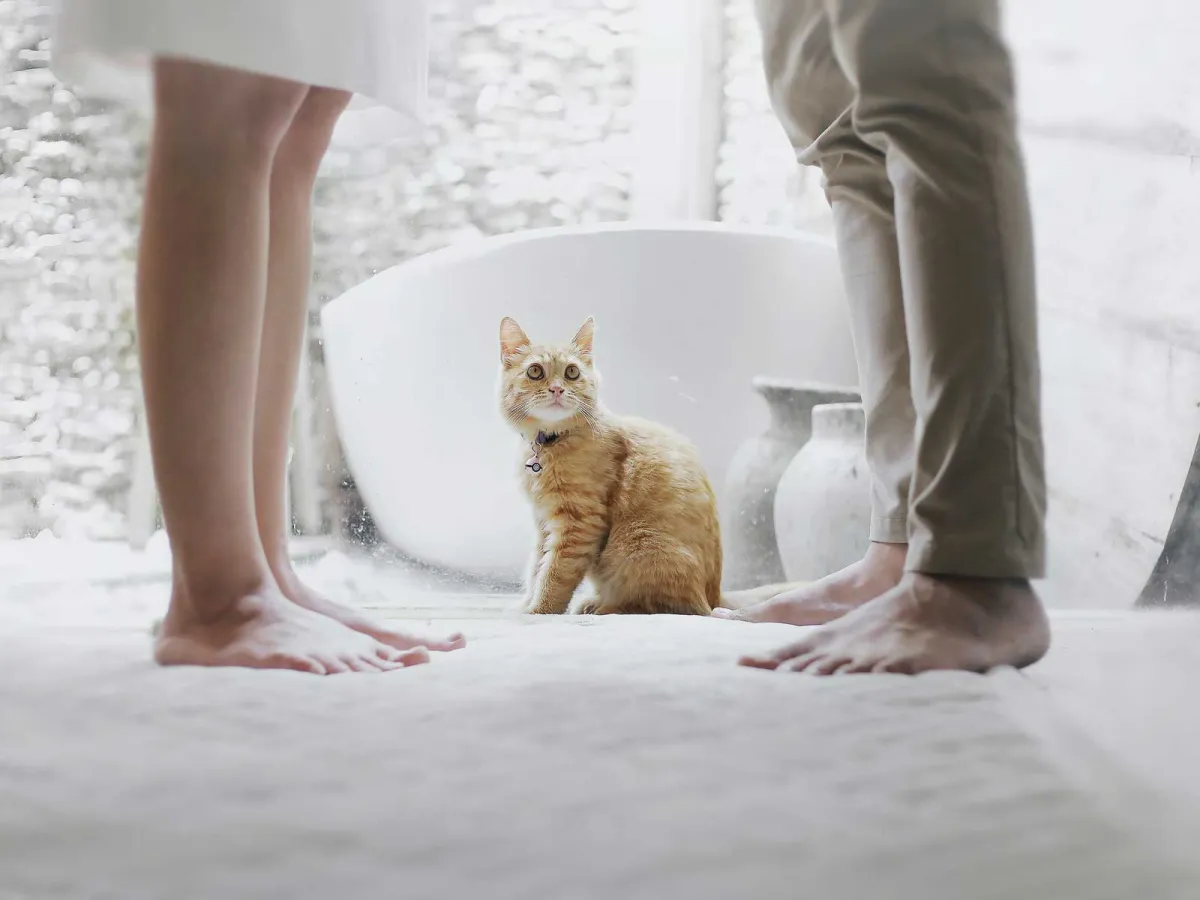
Who Gets to Keep Your Pets After Divorce?
If you are considering separating from your partner, or are in the midst of divorce proceedings already, you may be asking yourself: “What’s going to happen to the pets after divorce?”
Divorce often involves complex emotional and logistical challenges. And the fate of beloved pets can add an additional layer of complexity and upset. Many families consider their pets to be integral members of the household. Therefore, deciding their care after a separation has become an increasingly significant issue. In fact, some European countries have already ruled that pets should be classed as “living beings” in divorce proceedings.
We explore what happens to pets after divorce and offer insights into navigating this sensitive aspect of family law.
Pets are People Too
In England and Wales, pets are considered chattels in the legal arena. A chattel is an item of tangible moveable property. The term “chattels” harks back to the era of the British Empire, when people were concerned with what would happen to assets, such as their carriages and the horses that pulled them. Any personal items, other than money or property used solely or in part for business purposes falls into the definition of chattels.
Which basically means that your pets are treated the same way as your sofa or car. From a legal perspective, they are simply considered possessions to be split with the rest of the material assets. But how can you possibly view your own furry family members in the same way as inanimate objects? You love them and they would be miserable without you. After all, family pets are not things, they’re part of the family.
While you may not agree that your animals should be treated like objects, understanding that this is how the law in the UK works will help you to navigate the intricacies of pet custody.
Who Paid for Your Pets?
If you find yourself arguing over what will happen to your pets after divorce, the first step is to determine ownership in a literal sense:
- Which one of you paid for the animal?
- Who pays the pet insurance?
- Whose name is registered with the vet?
- How would you say the chores are split? For example, who feeds your pet and walks them the most consistently?
- Was the pet a gift to you or your partner? Is there evidence of that?
- Is your pet microchipped? If so, whose name is on the chip?
- Who pays for the pet food and other supplies?
While all of these points are a sensible place to start, it can be difficult to prove who paid for what. Often payments will have been made from joint resources as part of the weekly shop.
Some pets are planned for and purchased from a registered breeder, which can make it easier to unpick who the legal owner actually is. However, some pets just appear in your life and make themselves part of the family without any money exchanging hands. So what happens then?
The Best Course of Action for Pets After Divorce?
If you have given a home to an ex-shelter animal, or a rescued stray, it can make it harder to understand who owns them. Which in turn makes it harder to determine what will happen to your pets after divorce.
In the first instance, try talking to your ex. Discussing future pet care amicably is the most straight-forward way to reach an agreement. Talk about who has the most practical environment for the pet. For example, if you have moved out of a four-bedroom house with a garden into a third storey, one-bed flat, it may make more sense for your pet to stay in the family home. This doesn’t mean that you can’t discuss visitation and create a schedule that suits you both.
Pet Custody Mediation
If you are unable to find an amicable solution for your pets after divorce, you can get a mediator involved. Pet custody mediation involves a neutral third party who will help separating couples to negotiate and agree on the future care and living arrangements of their pets. The aim of mediation is to reach a mutually acceptable solution that prioritises the well-being of your pets.
Ideally an agreement can be reached that resolves the matter. This could later could potentially be included within a formal divorce settlement to clarify arrangements for the future.
What Happens if the Courts Get Involved?
It’s always preferable to agree a solution between yourselves, when it comes to what happens to your pets after divorce. Should the case go to court, you may end up with an outcome that suits neither of you.
In cases where there is no clear evidence of ownership by an individual, the court outcome will be uncertain. It is quite certain however that a Judge will be loath to spend precious court time and your legal costs on a protracted dispute about care of pets and will very much encourage an agreement.
In rare cases where a resolution cannot be met, the court may require a pet be sold or decide against you and give ownership to your ex. You would hope any Judge having to make this difficult decision would take into account the interests of the pet, the parties and potentially any children in the family as well.
Can a Child be the Legal Owner of a Pet?
Child welfare is always a priority when it comes to divorce. In cases where taking a family pet away from the children will cause them more distress, the courts may decide that the animals stay with the parent who has the kids most. Or, if the pet is a dog, it may be that the dog will always be with the children and travel between homes with the children.
The pets may, in essence, “belong” to the children. But this doesn’t mean that the pet is the legal responsibility of the child.
Decide What Happens to Your Pets After Divorce Before Tying the Knot
As with most things in life, preventative measures are more effective than reactive ones. If you are not married yet, you can determine what will happen to your pets after divorce by having a pet-nup drawn up.
A pet-nup is a colloquial term for a formal agreement between partners regarding the ownership, care, and custody of pets in the event of a relationship breakdown, such as divorce or separation. While not legally binding like a prenuptial agreement, a pet-nup is very similar to a prenup in that it sets out the living arrangements of any shared pets after divorce. It can help the courts to reach a conclusion if a dispute arises following separation.
Can a Pet Be Written into a Traditional Prenup?
Given that pets are still considered chattels in the UK, they fall under the property division laws in the event of divorce or separation. So it is possible to add your pets into your prenuptial agreement before you marry. Adding your pets to a prenup can give you peace of mind if you are blending your animal family with a new, more human one. It can ensure that you will revert to being their sole carer in the instance of divorce or separation.
Adding pets to a prenup also ensures that both partners have a mutual understanding of their rights and obligations concerning the animals after divorce. Which can prevent potential disputes and emotional turmoil during what is already a difficult time.
Get Legal Advice to Help You Determine Where Your Pets Will Live
Overall, when attempting to get custody of a pet after divorce, remember that you will be required to provide as much evidence as possible to prove you are the rightful owner.
If you do not have a pet-nup or prenup in place, and you are unable to reach a conclusion with your spouse, you can speak to one of our Family Law experts for support and advice.
Contact us on 0113 320 5000, or email family@winstonsolicitors.co.uk to discuss how prenuptial agreements can enhance your relationship.

